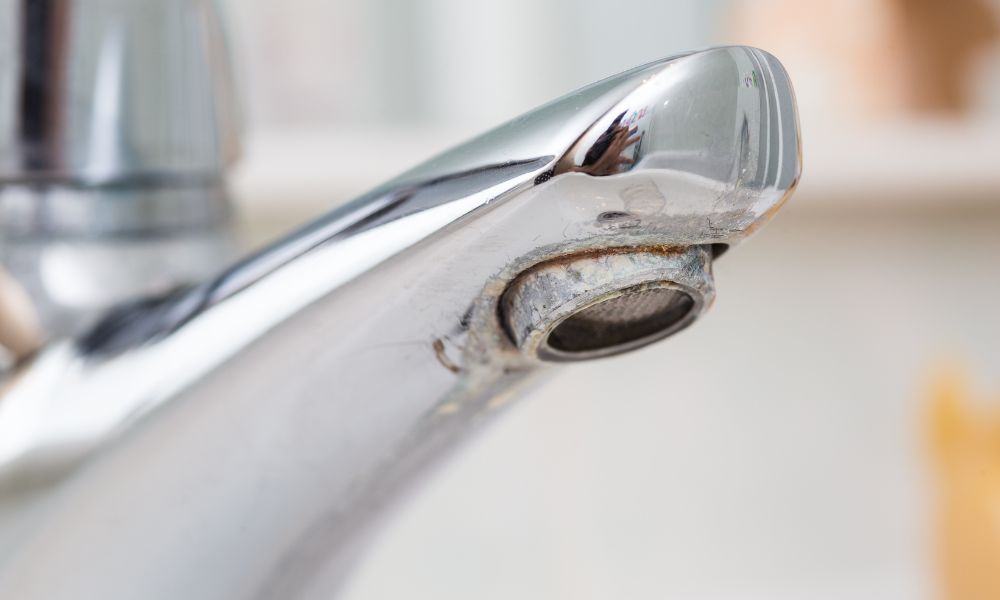

Hard water is a common issue in many households, yet you can overlook its signs until they cause significant problems. It has a high mineral content, particularly calcium and magnesium, and can lead to several inconveniences and damages within your home. Understanding the early warning signs of hard water is essential for taking timely action to mitigate its effects.
Let’s look at three signs that you have hard water at home and what you can do about it.
One of the most noticeable signs of hard water is a buildup of soap scum on your fixtures, shower doors, and tubs. This buildup occurs because the minerals in hard water react with soap to form a sticky residue that clings to surfaces. If left untreated, this buildup can be difficult to remove and can make your bathroom surfaces look dirty and dull. Additionally, soap scum can clog drains and cause plumbing issues over time. If you notice a greasy film on your fixtures or have difficulty getting rid of soap scum, that may be a sign that you have hard water.
To address this issue, consider using less soap when cleaning or switch to a soap specifically designed for hard water. You can also install a water softening system in your home to remove the excess minerals from your water, preventing soap scum buildup.
Another telltale sign of hard water is spotty or cloudy dishes and glasses after washing. The minerals in hard water can leave residue on your dishes, making them look dull and unclean. This residue can be frustrating, especially if you regularly run your dishwasher. Not only is it visually unappealing, but the residue can also affect the taste of your food or drink.
If you notice this sign, try using rinse aid or vinegar in your dishwasher to help prevent mineral buildup on your dishes. You can also hand-wash your dishes with a solution of equal parts water and vinegar to remove any existing buildup. In the long term, investing in a water-softening system is the most effective solution.
Hard water can be harsh on your skin and hair, causing dryness and irritation. The minerals in hard water can strip away natural oils from your skin and hair, leaving them feeling dry and itchy. The same minerals can also build up on your scalp, leading to dandruff or an itchy scalp. If you notice that your skin and hair feel rough and dull even after using moisturizers and conditioners, hard water may be the culprit.
To combat this issue, try using a moisturizing shampoo and conditioner. Or consider installing a water-softening system. If hard water is a persistent problem in your area, you can also use filtered or bottled water for your hair and skin.
Recognizing the signs of hard water in your home is critical for maintaining your appliances’ longevity, your dishes’ appearance, and, most importantly, your comfort and health. Understanding the difference between hard and soft water and taking the necessary steps to address your hard water issues can greatly improve your overall water quality. If you suspect you have hard water, don’t delay in finding a solution.
Discover practical tips to elevate your summer barbecues with great food, fun games, and a…
Discover legit methods for how to make money playing video games. Explore esports, streaming, content…
Confused about how many steps daily are needed for good health? Forget the 10,000 myth…
Discover legitimate highest paying online surveys and learn strategies to actually earn worthwhile rewards for…
When it comes to keeping your home comfortable while minimizing energy costs, the roofing material…
Ensuring optimal comfort in your home hinges largely on the reliability of your air conditioning…